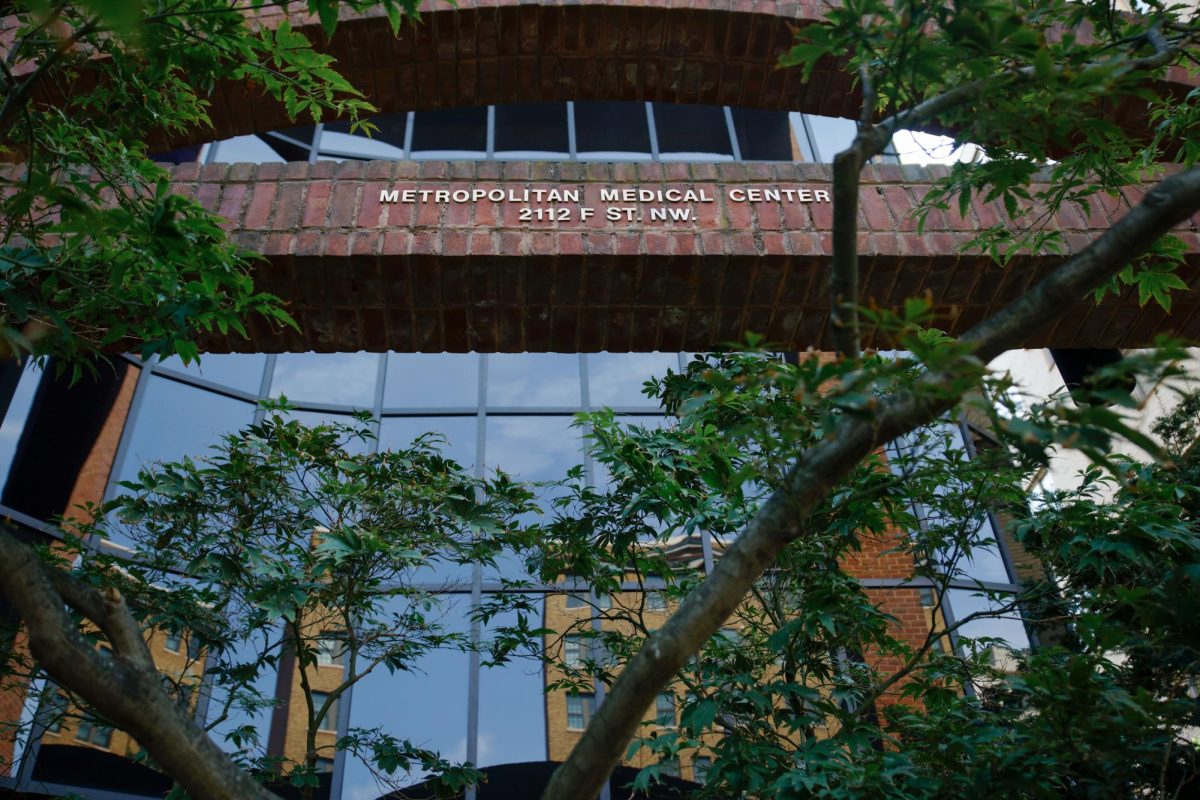GW’s student health insurance plan covers 100 percent of abortion costs from in-network physicians, a 20 percent increase from last year’s coverage.
The Student Health Insurance Plan, a University-provided health insurance plan with automatic enrollment and an option to opt out, covers 100 percent of the cost of student abortions, an increase from last year’s 80 percent, from in-network physicians and 60 percent of costs for out-of-network abortions this year. A University spokesperson said the decision to increase the coverage was partly due to advocacy of student organizations like the Student Government Association and GW Reproductive Autonomy and Gender Equity.
“The Division for Student Affairs negotiated an increase in the coverage of cost of medication and surgical abortion services provided by in-network providers from 80% in the 2023-2024 academic year to 100% in the 2024-2025 academic year,” the University spokesperson said in a statement.
SHIP costs $2,999 for this year, an increase of $158 from last year, and the University spokesperson said in an email that the increase is not due to the expansion of abortion coverage.
GW RAGE and the SGA collaborated last semester to pass a bill advocating for abortion pills in the Student Health Center and for the University to commit to prioritizing comprehensive reproductive health care to increase accessibility.
GW RAGE has collected over 1,000 signatures on a petition for medicated abortion in the SHC since last fall, according to their September newsletter. The University has previously denied requests to provide abortion pills on campus and Dean of Students Colette Coleman said in an email to RAGE last academic year that the SHC is meant to be a primary care practice that “refers to specialists when necessary.”
“The Student Health Center currently offers a robust array of options for students interested in gynecologic care,” the University spokesperson said in an email. “Offerings include ‘well women exams’ for Pap smears, visits for pelvic concerns like vaginal discharge, pelvic pain, UTIs, STIs and irregular periods, as well as contraceptive care and breast health care.”
The University spokesperson declined to comment on if DSA plans to offer medicated abortion on campus after student advocacy for the pills.
In the District, there are currently 11 virtual abortion providers — which provide telehealth services and mail abortion pills — and three in-person providers. Of the three brick-and-mortar providers, one is in Foggy Bottom. SHIP covers 13 in-network OB-GYNs in the District.
The cost of abortion varies widely based on the provider, the trimester of pregnancy the person is in and the method of abortion, according to Planned Parenthood. On average, Planned Parenthood abortion pills cost around $580 while an in-clinic abortion during the first trimester costs around $600, with late-trimester abortions being even more expensive.
Experts in abortion said the increase in coverage helps to destigmatize abortion procedures, and students should continue to advocate for increased abortion access on campus.
Mary Ziegler, a professor of law with a focus on reproductive rights at the University of California at Davis, said universities insuring the cost of abortion for students helps reduce the stigma of the procedure by making people see it as the same as other kinds of health care.
“It sort of normalizes the procedure,” Ziegler said. “That the University health plan covers lots of health services and then it covers abortion too, it’s sort of sending the message that there’s nothing especially objectionable about abortion.”
Ziegler said financial support from the University will help students whose parents may not be willing to pay for the procedure and cannot pay for it themselves.
“There’s questions of costs, particularly if students’ parents have disagreements with them about whether abortion would be the right decision for them,” Ziegler said. “Many college students are not financially independent enough to make that decision without somebody else’s financial support.”
Randall Lake, an associate professor of communication and researcher of social justice movements at the University of Southern California, said student groups on campuses need to continue to advocate for changes in abortion policy because those making university policies and laws are older and not attuned to young people’s needs.
“If they don’t, the world will not be the way they want it to be,” Lake said. “Laws and policies are generally created and implemented by older folks who have their own agendas, and student voices are crucial in influencing that process.”
Lake said abortion is a healthcare issue, and abortion inaccessibility due to costs hinders students’ ability to decide what is best for their own health.
“There are many situations in which abortion is a very important medical procedure for women and girls and to foreclose that damages their health,” Lake said. “It also damages a lot of other things, including their rights to autonomy.”





